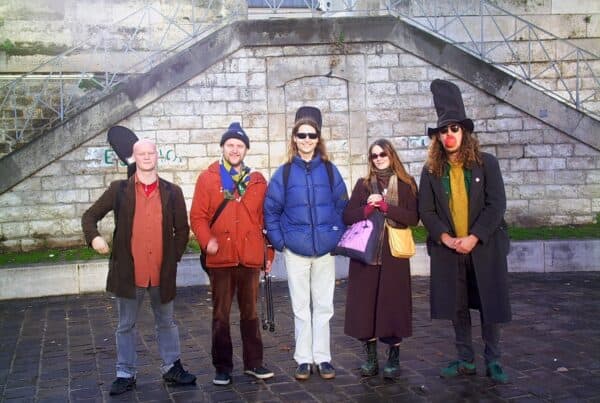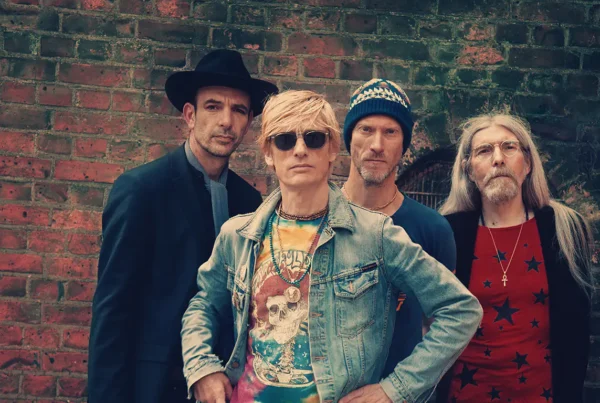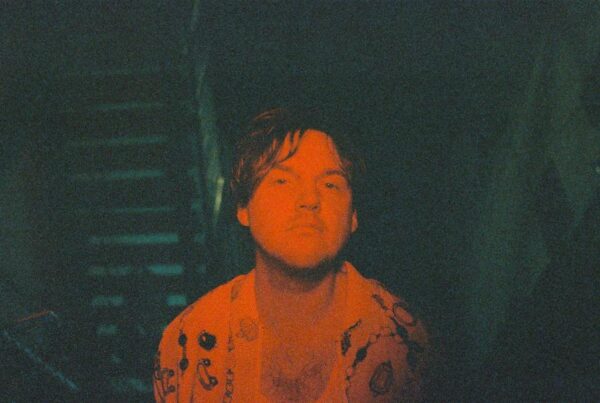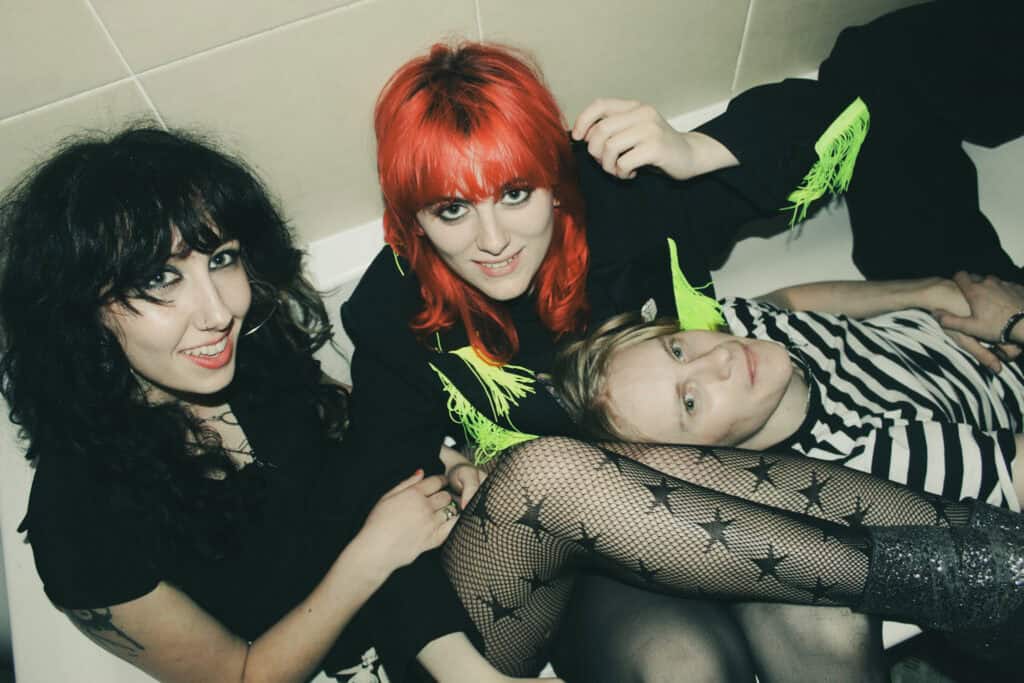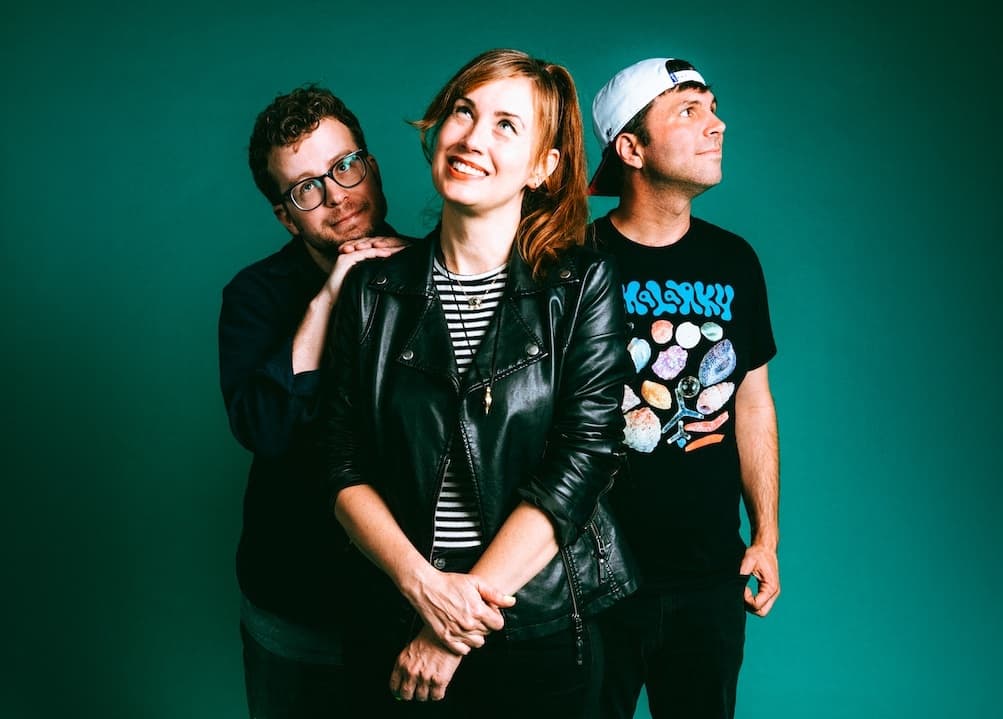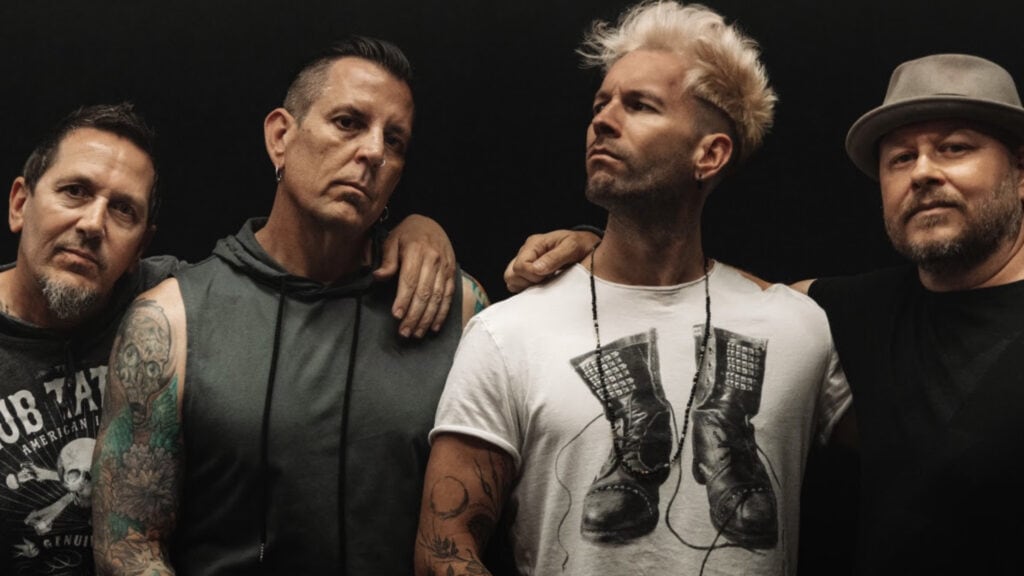In our next band spotlight, we talk to Sam Griffiths of The Howl and the Hum.
[like_to_read][/like_to_read]
S] How did The Howl and the Hum come about?
S: When I started my acoustic stuff, trying to be Bob Dylan in student garb, I came across the realisation that I could still like Bob Dylan and not have to sound exactly like him. I met Brad our bass player through an open mic night and we started playing my songs with more of a band set-up. We had a rotating wheel of members we’d meet at open mic nights and stuff like that and the band really blossomed from there. We were having more ideas about ambient stuff and heavier tracks, things that couldn’t be done just acoustically, so we expanded it until we got Connor and Jack in who are now implementing the sound on a larger scale.
S] What’s the dynamic like within the band?
S: We’ve gone through different line-up changes over the years because we were very confused about what we were going to be. We were really poppy at one point, we went a lot darker at one point and got a bit goth-y before pulling it back again. Both Connor and Jack though have great songwriting heads and really know how songs should go, and allow a lot of space for the songs which it utmost in a band. This project is so based around the songwriting itself that you have to let the other band members let the song breathe.
S] What is your attitude towards the music industry and to success?
S: If you’ve got a good voice and you can write a good song, there is a path that you can go down which will take you to immediate success and stardom which is fine but I find that that doesn’t help you make a career. You’ll be a flash in the pan as a songwriter whereas if you try to do something that is accessible but in an interesting way that is pushing your own art, you can try and make a career out of that and that way you’re becoming an artist rather than just a singer or a songwriter or a pop star. At one point that option was there for me and I’m very glad that I chose to go down the way I have.
S] What do you want to make people feel? You can feel a lot of emotion in your songwriting.
S: I find songwriting quite cathartic a lot of the time. It’s helpful to me to either overcome a problem or a situation. The classic is heartbreak and stuff like that but there’s distorting it too, I get quite a lot of pleasure in writing from other people’s perspectives which has been the case quite often recently. I’ve never been to Godmanchester Chinese Bridge. That song is about a character whose life rotates around it, and although I do have the experience of my life rotating around certain ideas and thoughts and memories, that one was me writing a character. A lot of the songs that are going to be on this EP are characters that I can relate to emotionally. But at times I reread the lyrics and they are completely autobiographical and I am that character. I listened to The Mountain Goats a lot when I was a kid, and I read an interview when I was about 14 which blew my world apart when he said he didn’t really release an autobiographical record until he was about 32. All of his songs were characters, and I was amazed at that concept. It blows the doors wide open and you realise if you want you can write from these places.
S] Is Godmanchester Chinese Bridge a good indication of what we can expect from the rest of the material?
S: It’s definitely one facet but the other two tracks on the EP are varied. The thing we’ve been striving for for the past few years is a strand between everything we do, and there’s definitely a thread between the three, but they’re varied in sound. If you go by the dynamics alone, Godmanchester Chinese Bridge is the middle, and there’s a quieter song and a louder song. To me it’s all coming from a similar place though.
S] As well as the obvious influences like Bob Dylan and The Beatles, there are some heavier elements in your sound. Who would you say your influences are who you don’t necessarily sound like but have impacted you sonically?
S: For the ambient side in the production, there’s Aphex Twin. I listen to FKA Twigs because she’s bonkers and her production is amazing. We’re big Kendrick fans, even the Kanye stuff where he just goes over the top and creates these loops that stop people in their tracks. It’s so attractive to hear music like that that’s so immediate. My Bloody Valentine is one in the heavier stuff. I used to get Kerrang! every week as a kid and had posters on my wall, and that part of me is probably never gonna leave me. I sold my Gibson SG a couple of years ago but that loudness is in me. And on the lighter stuff like the track Terraforming there’s stuff like Bon Iver and The National.
S] Your voice is quite distinctive. Where did you first find your voice?
S: I dunno, I was always a shit singer when I was a kid. My gran was a piano teacher and would always try to make us sing songs round the piano. When we were making the video for Godmanchester Chinese Bridge it’s made from all this found footage from our grandparents, and a lot of the stuff we left off is me hanging round my gran’s piano and it’s really shit. There’s nothing musical there. I played in a few bands when I was 13 or 14 and I sang a little bit but then withdrew because the other guys wanted to sing. I was in a folkier band then where we co-wrote songs and sang in harmony a lot but I wasn’t at the forefront, and then when I came to university I started going to a lot of open mics, six nights a week. I think it was that constant rehearsal in front of me, and a lack of fear to just do whatever I wanted. I’d do Bob Dylan, then Leonard Cohen, then Talking Heads, then Randy Newman in the style of Radiohead, Blondie in the style of Reverend Gary Davis, finding ways to push your voice. That’s how you find your musicality, crossing wires in the best way possible.
S] York’s not somewhere people think of as a hub of musical opportunity, but what advice would you give to someone coming out of York trying to get themselves out there?
S: I think it’s a shame that there isn’t much of a spotlight on York. A lot of people give up in the first few months or years of starting a band in York because they don’t feel there’s enough attention on York as a city musically. I’d say don’t stop. Attentiveness to your art is key. You should constantly strive for what’s artistic rather than what’s going to make you successful, and if you’re good at it, you will eventually find success.
S] What is your personal definition of success?
S: There’s fiscal success in that you’d be able to make enough money to survive as a musician, but then there’s success when you get the feeling that you’ve written a good song and there’s no feeling like it. It’s the highest you can get. You might be financially successful as a musician but might not necessarily be happy with what you’re creating, and then you could not make any money and not even play your music to anyone but you could be artistically successful. Artists should strive for artistic success, and if they’re able to make any money off it, it’s an added bonus.
S] Do you have any career highlights?
S: There was a moment at a gig a couple of weeks ago where we did something that I won’t spoil but it really worked, it flipped the idea of a gig on its head and people were freaked out but loved every second. That people came out after that gig saying that it was one of the best things they’d ever seen, that really warmed my heart that we planned that and we did that ourselves.
S] How did the idea of the Float Tank gigs come about?
S: A lot of it came from us being a bit bored with what gigs are. For the Float Tank gig, you’re not going to bar, paying £4 for a Red Stripe and standing in a half-filled room watching bands at an odd volume, you’re going to be immersed in something and as soon as you turn up you’ll realise that it’s not the sort of gig you’ve been to before because your senses are being played with. There’s a Samuel Beckett play called Not I in which the one actress in the play essentially performs a monologue while hiding behind a giant black screen except for her mouth which has a small hole cut for it, and there’s one light in the room shines on her talking really quickly. He’d unscrew the bulbs in the fire exit signs in the theatre, going against the theatre permissions obviously because that’s very illegal, but just so that the audience were at complete unease. We spent all day putting cardboard over all of the windows so there’s not a hint of light, and you notice things you don’t normally notice. When it’s dark and it’s quiet you can hear your own heartbeat. You’re only concentrating on the things you can’t see which is interesting because you’re concentrating on a lack of senses there, and then you’re concentrating on the sound. We were behind a curtain in this black room in case any lights from our pedalboards could be seen. People didn’t really know what to do with themselves at first. We play this music I’ve made which consists of slowed down poetry and reversed vocals, the sound of someone laughing but slowed down a hundred times so it sounds really weird, old music boxes, it’s like a horror movie soundtrack. There’s the sound of a tank of water filling up and because the speakers are so good and you’re deprived of your senses, it does sound like there’s water pouring into the room. Then we started playing and people lost their shit a bit which I love. You just concentrate on the song, you just concentrate on where the lyrics are taking you. We found people coming up to us later saying they’d lost their inhibitions and would dance in the total darkness because no one could see them. We were a little worried that people would be silent for the whole fourty minute set but after the first song we could hear people saying out loud “This is fucking weird”, people were trying to find each other in the room. In this next one we’re taking things up a bit. It’s a longer evening so there’s gonna be more things happening, a few more installations and immersive elements. I wanna keep it a surprise but there will be loads of really weird things happening. There’ll be walkaround elements as well, there’s a theatre company in London called Punchdrunk where they’ll take over a warehouse or a castle and people can walk around and as you walk around you hear different parts of the story, we want to do something like that but just with music in the total dark. You might not catch one bit of the show that other people caught, and people afterwards will be asking each other “Did you hear that thing about twenty minutes in?” and they’d have heard totally different things depending on where they were.
S] Are you going to tour this concept?
S: We’ve only done one so far and we’ve realised that The Howl and the Hum’s music really works in the dark. We’re not particularly show-offs, we don’t have long beautiful hair or dress well, and if you get the reaction we did the first time then we want to immerse and submerge people in the music. So we are talking right now about being able to take that on the road.

